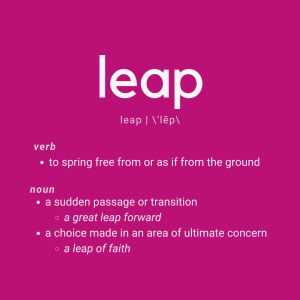If you have started a new job recently or can remember a time when your job was new, you may have noticed that people who have been working at a place for a while can be hesitant to interact with new employees. Yes, they may say hello, introduce themselves and wish you the best, but the welcome wagon often stops there; and you are left to navigate the new environment on your own.
Not feeling welcomed and included can be uncomfortable. You may wonder, “Are these people always this distant? Do they dislike me? Did I have something in my teeth?” Any of those things can be true, but consider this: many people who have been in a company for a while may not want to talk about their work with you.
That’s not to say they don’t know what they’re doing or don’t have the skills or education to do their jobs well. But all too often people don’t understand the context of their work or how to describe how their job relates to others’. That looming vibe of not knowing can feel really awkward for the folks who have been around a while.
To avoid the awkwardness, current employees avoid the newbies. What would happen if a new person wanted to know information that the seasoned pro didn’t have? They hope the newbie won’t ask why they process reports a certain way, why an outdated policy remains in place or why they don’t fix a process that is inefficient.
If they are asked, it might become apparent that they don’t know. If they don’t know, then it might become obvious that they have lost interest in finding out and improving the quality of their work. And if that came to light, they might have to notice they are profoundly disconnected from their work itself. And that is an even bigger problem. People avoid the newbie to avoid themselves and what they don’t want to notice about their work. The problem with that approach is that now the new person ends up as disconnected as they are.
In what ways do you avoid the newbies in your organization? The newbie might not be a person but a new idea from a colleague. Any time we limit our curiosity, limit our chances to understand why we do things and improve how we do them. We miss an opportunity to feel good about our work.
This week’s assignment: ask a new question and be curious to find a good answer.





